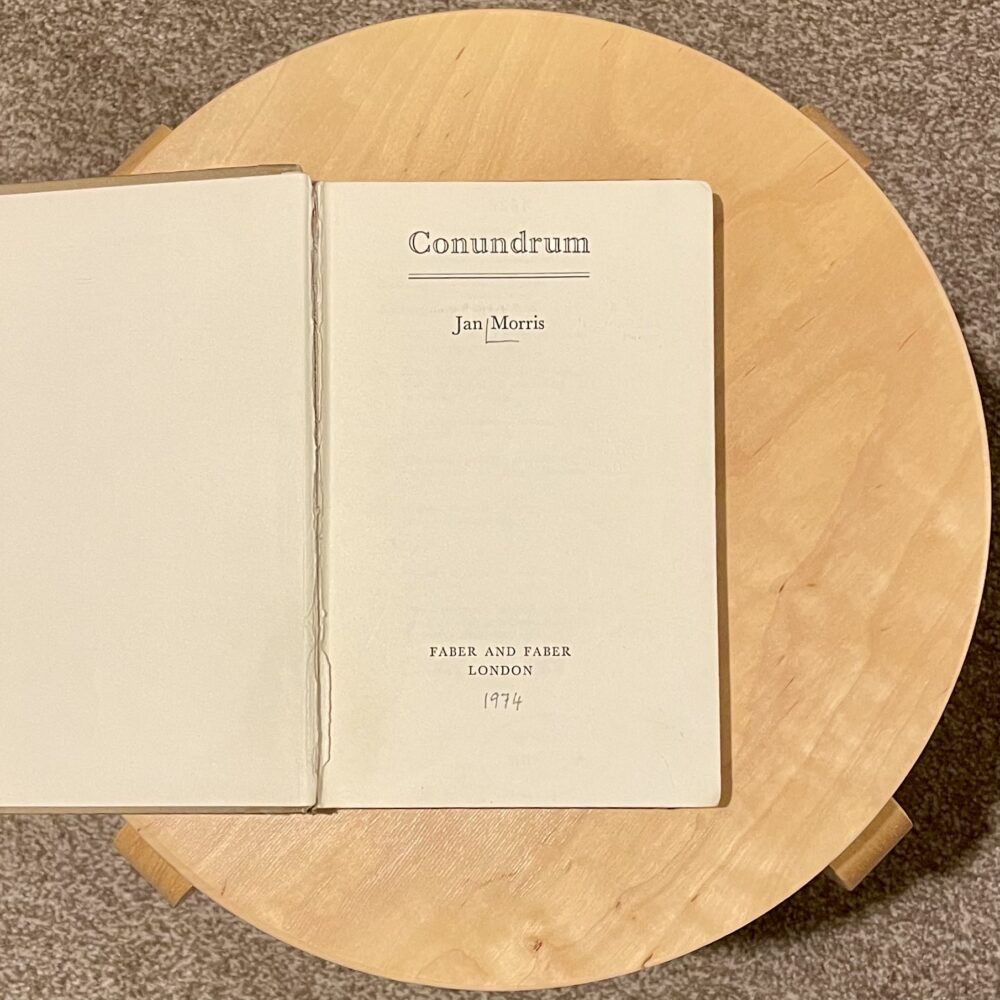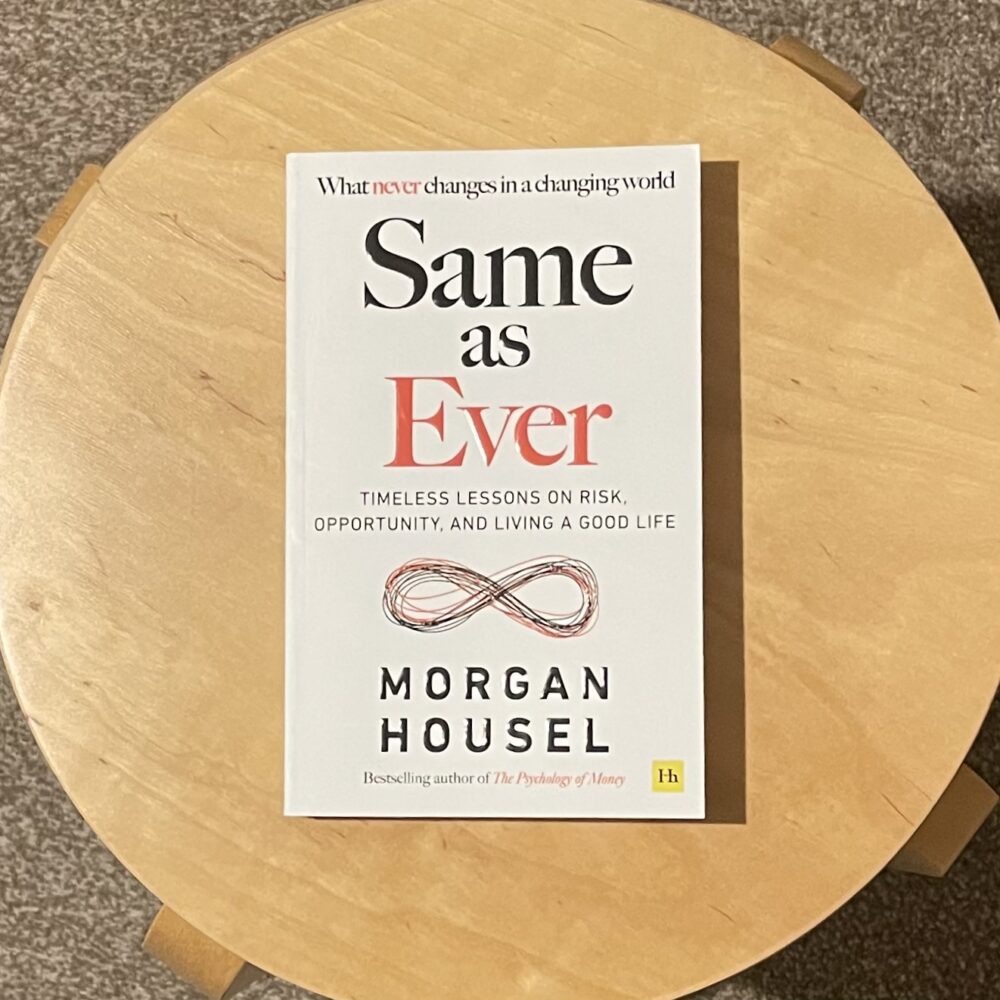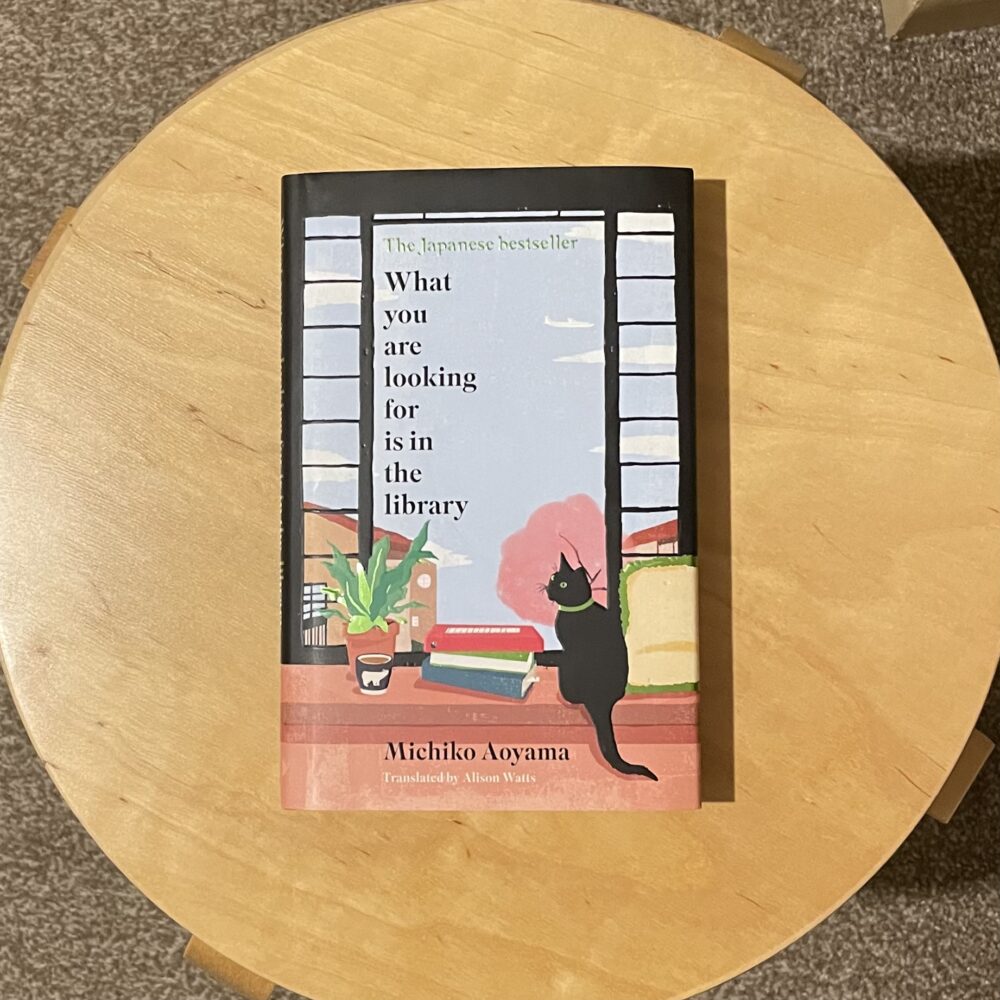I’ve been reading ‘Conundrum’ by Jan Morris

They say that reading history is the only way to understand the news. Someone recently, perhaps in a news article, suggested reading Conundrum as an essential text to understand the current hysteria over gender.
Morris died in 2020 at the age of 94: she was of my grandparents’ generation. She is best known as a journalist and travel writer, including the only journalist accompanying Edmund Hillary and colleagues on the first expedition to successfully ascend Mount Everest in 1953.
This book, published in 1974, documents her gender transition. She was born James Morris, the name she used until after her gender reassignment surgery in 1972. There is, by the way, plenty of background colour about her journalistic career, which I found fascinating.
Conundrum is of its time, and some descriptions and gender stereotypes would be considered ‘problematic’ today. It is, nevertheless, beautifully written, and I had no trouble turning the pages.
I’ve sometimes struggled to fully understand the motivation behind transitioning from one gender to another. I’m in the privileged position that it’s something I’ve never been driven to contemplate at any length. Perhaps I undervalue the impact of my gender on my life, and so I find it difficult to appreciate why it’s such a big deal to others. Morris helped me see this differently and understand that—for her—the change and associated surgery were ‘corrective’.
This is an idea I’ve come across before, but something in Morris’s explanation made it ‘click’ for me. I think I appreciated her comparison between the medical ethics of removing a healthy arm and a healthy penis, a perspective I hadn’t considered before. I found myself challenged and enlightened as a result.
I also found Morris’s discussion of the bureaucracy of her change insightful: whether she could remain married, still be a member of her male-only members’ clubs, and so forth. I was struck by how such things were dealt with in the 1970s, mostly with compassion, care and, perhaps above all, consideration for Morris’s feelings.
It feels worlds away from the unpleasant approach of those who seek to divide us in the 2020s. It’s both unimaginable and yet true that half a century later, Ministers of the Crown try to score rhetorical points in Parliament by discussing whether women can have penises. There is no compassion for any individual in suggesting, as a former Home Secretary did at the despatch box, that Sir Keir Starker may run as Labour’s first female Prime Minister.
This New Year’s Eve, perhaps we can hope for the future that our leaders will be better at learning from our past.
This post was filed under: Post-a-day 2023, What I've Been Reading, Jan Morris.











